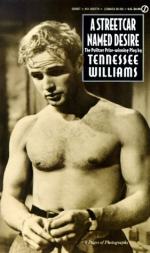|
This section contains 696 words (approx. 3 pages at 300 words per page) |

|
Are [Gustave Flaubert's novel] Madame Bovary (1857) and A Streetcar Named Desire (1947) pleas against "man's inhumanity to man," or dry admonitions against the folly of
"Charm'd magic casements, opening on the foam
Of perilous seas, in faery lands forlorn"?
Critiques of Flaubert's novel … and Williams's drama … cautiously eschew a positive answer to this question. They seem inclined to support the interpretation that Flaubert and Williams are on the side of cynicism and realism. Despite the ambiguity in this respect, which they concede inheres in the French novel and the American play alike, they favor the view that both works castigate "romanticism" and "escapism." Such an interpretation, however, not only unaccountably ignores the avowed intentions of both artists, but gratuitously obfuscates the import of two works whose pretensions to greatness reside in simplicity and economy rather than in complexity and exhaustiveness. (p. 10)
In contrasting the affluent daydreams and subsequent dysphoria...
|
This section contains 696 words (approx. 3 pages at 300 words per page) |

|


